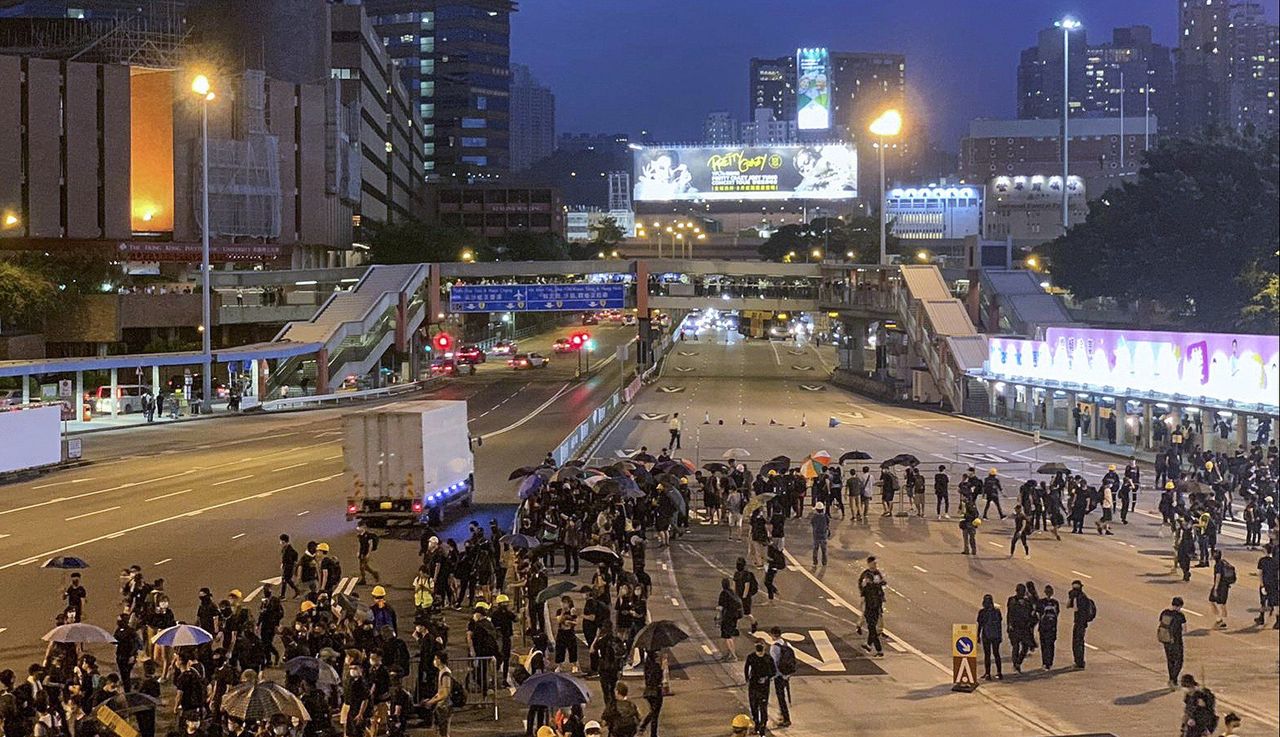Hong Kong News

Memos show ‘organised nature’ of Hong Kong protest, as 4 convicted of unlawful assembly
Contact information of lawyers and memos reminding detainees of their legal rights made by activist groups are evidence of the “organised nature” of an anti-government protest in 2019, a judge has found in convicting four suspects of unlawful assembly.
Escort guard Cheong Hon-tung was among four people, aged 17 to 27, found guilty at the District Court on Friday in relation to the overnight disturbance in Hung Hom on August 10 and 11, 2019, two months into the social unrest that year.
Cheong, the eldest defendant in the group, was also found guilty of assaulting a police officer, and possessing explosives and offensive weapons in a public place. Police had seized from him seven smoke cakes, a catapult, knife and hammer.
 Protesters block the Cross-Harbour Tunnel in Hung Hom in August 2019.
Protesters block the Cross-Harbour Tunnel in Hung Hom in August 2019.
In a 59-page verdict, Judge Stanley Chan Kwong-chi dismissed the defendant’s assertion he had no knowledge about the unlawful assembly at a nearby junction when he was arrested outside Whampoa MTR station that night.
He noted the prevailing signs of disorder, such as a gathering of about 50 mostly black-clad protesters and a road blockade, meant that even an innocent passer-by who could not see police flags or hear warnings to disperse could understand an illegal gathering was under way.
Apart from Cheong’s black attire and protest equipment, Chan said the defendant’s role in the crime could also be deduced from two cards seized from him, which the prosecution submitted as evidence at the judge’s request.
The two cards, printed on both sides, listed contacts for legal and medical support and what appeared to be “tips” for safeguarding one’s legal interest upon arrest.
The telephone numbers on the memos included those of Spark Alliance HK, an umbrella group that covered legal and medical expenses for protesters; the now-disbanded Civil Human Rights Front, which organised many of the largest demonstrations in 2019; two law firms and nine tertiary institutions.
The memos also reminded readers of their rights to “remain silent, refuse to give any statement and sign any document”, and that they were not obliged to heed any request to unlock their mobile phones or provide passwords.
The judge observed an ulterior motive in the people behind the notes, who had “such patience and resources” to teach detainees how to counteract a police investigation.
“These cards, produced in advance to offer somewhat cryptic ‘heartfelt reminders’, showed the organised nature of the crime and the groups behind the scene,” he said.
But the judge stopped short of finding whether those responsible for producing and distributing the memos constituted abettors or conspirators of the unlawful assembly in question. He also declined to rule whether any lawyers’ code of conduct had been breached.
The judge also convicted Cheong’s three co-defendants of taking part in the same illegal protest, citing the black attire and protest paraphernalia found in their possession. The three are audio technician Andrew Yiu Tsz-ho, 25, and students Peggy Li and Tong Kin-lung, aged 16 and 22 respectively.
Yiu was also found guilty of a count of possessing an offensive weapon in a public place for carrying a laser pointer to the scene.
All four defendants were remanded in custody pending an array of assessment reports. Their lawyers will advance oral mitigation on February 25 before sentencing.
Cheong and Yiu face up to seven years behind bars, whereas their two counterparts can be jailed for up to five years on a single count of taking part in an unlawful assembly.











